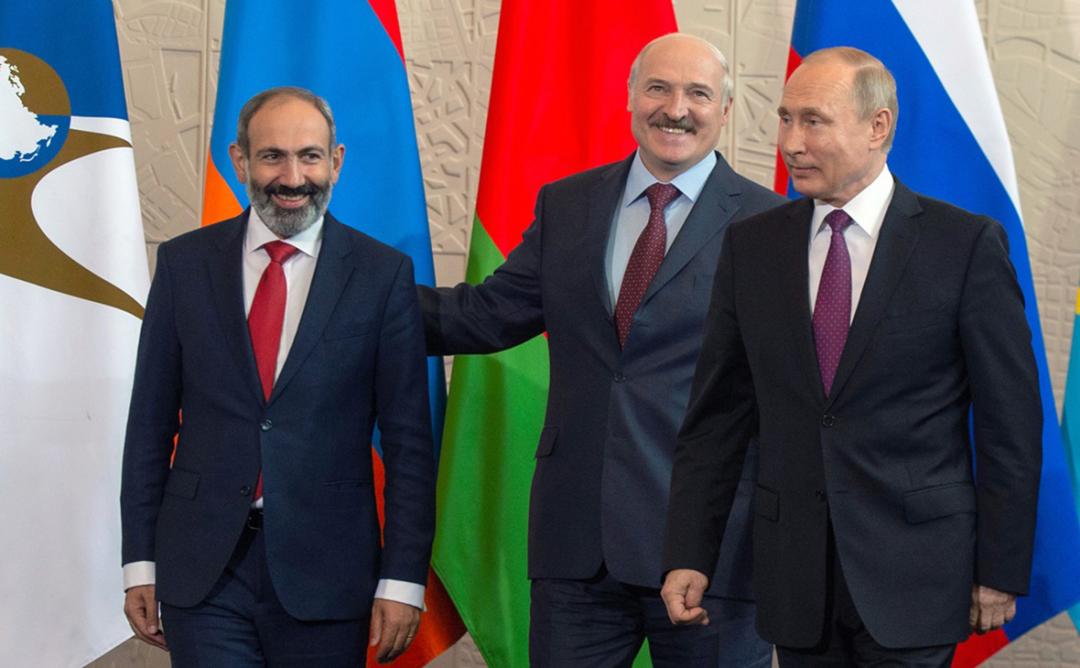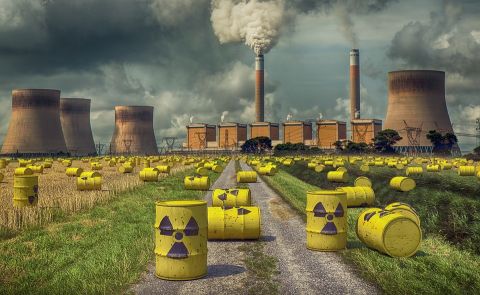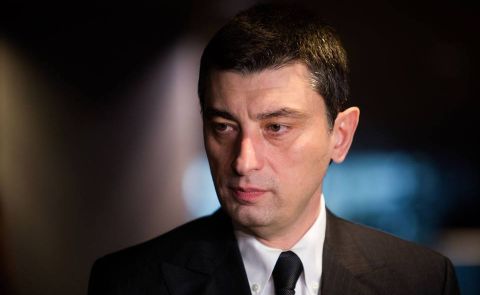
Armenia and Russia – Is the Split Really Coming?

Even though the Velvet Revolution started out on the matter of domestic issues like market reforms, poverty and democratization, it was quickly tied to a broader narrative of a deteriorating relationship between Armenia and Russia. Caucasus Watch recently reported on the decreasing support rating for Russia within the Armenian population. Though the majority still believes Russia to be Armenia’s closest partner, there was a decrease in Russia’s popularity among Armenian citizens by more than a quarter over the last seven years. Yet, the debate continues how far the new Armenian leadership is translating this trend into the political arena.
Since the revolution, the elephant in the room has been the contrast between the liberal reform agenda of the Pashinyan government and Russia’s views on this matter. Nevertheless, the Pashinyan government has quickly announced that Armenia is not going to realign itself with the West on Russia’s expense. Russia, despite maintaining its traditional connections to Armenia’s old elite, did not seem to consider cutting ties to the new Armenian government either. This is noticeable, as Russia has in the past reverted to extreme measures to support more traditional political factions throughout the post-Soviet sphere in order to check the risk of so-called pro-Western “Color Revolutions” (see Ukraine).
There have been some structural changes that would let Armenia benefit from a realignment to break out of the Russian orbit. Like it has been mentioned above, a stronger partnership with Western nations would provide a source of assistance for the government’s reform agenda and its efforts to democratize the country. Additionally, Armenia’s increasing trade volume with the EU seems to slowly open a window of opportunity for Yerevan to change course. In this regard, the EaP is a success story and has served as an efficient channel for coordinating partnership initiatives between Armenia and the EU.
This newly emerging image of Armenia as a modern and liberal nation has also attracted a renewed engagement from the Armenian diaspora worldwide and the Pashinyan government has been pushing to welcome immigrants of Armenian origin with good results. This highly skilled group of newcomers could play an essential role in kickstarting economic growth and modernization, while broadening the revolution’s support base.
The attractiveness of the Russian alliance, on the other hand, seems to be somewhat diminished as of late. Beyond the alleged attempts by Moscow to interfere in Armenia’s domestic affairs through its traditional political allies, Russia’s overall geo-economic leverage over Yerevan has taken a hit in the past. In terms of energy exports, Russia and Armenia have come at odds over the “premium” price that Moscow originally granted for Yerevan but now intends to increase, while global energy prices have generally tanked. This might leave Yerevan looking for alternatives if both sides cannot agree on a new price deal. Armenia’s growing trade with the EU also reveals the weakness of the EAEU, which has been set up as an instrument for Moscow to ensure the reintegration of the post-Soviet economies as a countermodel to a new round of European enlargement. The benefits of the institution have been argued over before in Armenia, though pro-Western factions seems to have given up their push to leave the Union for now.
The reality of Yerevan’s decision making
Though Russia still has strong economic and political influence over Armenia, a clear trend of shifting Armenian interests and opportunities in these areas jumps to the eye. Therefore, some observers believe Yerevan might follow up on this and attempt to make a fundamental foreign policy realignment. Yet, this perspective does not fully comprehend that Yerevan’s foreign policy is still basically a one-issue arena.
Since its start in the 1990’s, the Nagorno-Karabakh has been the kit, which kept Armenia close to its powerful allies in Moscow. One might think the new government of revolutionaries in Yerevan could abandon this foreign policy orientation in order to diversify its objectives and reintegrate into the international community. This is unrealistic though, as the Nagorno-Karabakh is not only a foreign policy matter. Like so many other territorial conflicts, the issue is perceived as a life-or-death question by the Armenian public. Loosing Nagorno-Karabakh, regardless of the opinion of the Pashinyan government, would completely deteriorate its support-base.
Armenia is the weaker side of the conflict in terms of military power, economic strength as well as demographics. To make up for this seemingly insurmountable disadvantage, Yerevan does need a powerful ally who can at least upset the imbalance in military capabilities and protect the current status-quo. Here, again, one might imagine the Pashinyan government could simply venture out in search for a new alliance capable of protecting Yerevan’s interests in the conflict, while being more compatible with the agenda of the revolution. Once more, this option is not on the table as there is no other power willing and capable to militarily ally with Armenia. Azerbaijan has not only been generally accepted by the international community as being in the legal right on the territorial dispute, but there is also no external power willing to take on military responsibility and involve themselves in a conflict that has the very real potential of escalating at any given time. This is particularly true in terms of Western states that might be able to support the goals of the Pashinyan government and the Velvet Revolution. Even though Moscow also technically recognizes Baku’s claims as right, it stays unclear if Russian forces would intervene in case of an Azerbaijani attempt to restore control over the occupied territories.
With the Nagorno-Karabakh conflict still driving Yerevan’s foreign policy agenda and the lack of alternative alliance options that would protect the status quo on the matter, the talk about an Armenia realignment is mostly meaningless. It seems to be almost irrelevant who governs in Yerevan when it comes to the country’s foreign policy alignment. Armenia is simply unable to break free from Moscow’s leverage under the current environment. Armenians changing public opinion on the alliance does not matter as long as nationalism spurred by Nagorno-Karabakh issue stays such a dominant force.
The Pashinyan government is likely to continue to lobby for support from Western states on the issue of democratization and investments, though it will be treading the line very carefully to not upset Moscow. Officials in Moscow are also likely to continue to pressure the Armenian government to ensure that they are aware of the situation and do not try to take actions that undermine Russia’s economic as well as political interests.
Moscow, on the other hand, will also not change its stance on the conflict, as some might have thought after Russian arms deliveries to Azerbaijan have been revealed after the Four-Day War in 2016. Due to its geopolitical dilemma, Armenia still serves as Moscow’s most reliable asset in the Caucasus that enables Russia to guarantee a strong military presence in the region. Therefore, the Russian government will continue to try to keep the Nagorno-Karabakh conflict frozen.
While a realignment towards the West might offer economic and political benefits to a government that tries to transform Armenia along the lines of the Velvet Revolution, it is not a realistic option. Even though Armenian public opinion might turn against Russia, the Nagorno-Karabakh conflict is still at the heart of Armenian nationalism. Regardless of the government’s actual stance on the Nagorno-Karabakh issue, no political leadership in Yerevan can afford to lose the territory if it wants to stay in power. Indicative for this is the fact that Pashinyan seemed to have shifted towards a more confrontational rhetoric on the issue, trying to counter the critical characterization of him being a “dove” on Nagorno-Karabakh. This has pushed the recently much discussed “territory-for-peace“ approach out of the realm of possibilities.
Consequently, the military component of the Armenian-Russian alliance remains necessary to uphold the status quo regarding Nagorno-Karabakh and there is simply no alternative to provide a substitute for this.
-Philip Roehrs-Weist
Follow Philip Roehrs-Weist on Twitter @RoehrsWeist
See Also


Russia Begins 24/7 Radiation Monitoring in Dagestan After Iranian Nuclear Incident

How Do Caucasus States React to Israel-Iran War?

Weekly Brief on Military Situation in the South Caucasus (9–15 June 2025)

Former Georgian PM Gakharia to Face Prosecution

